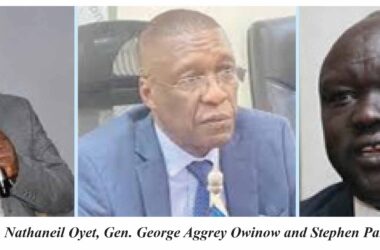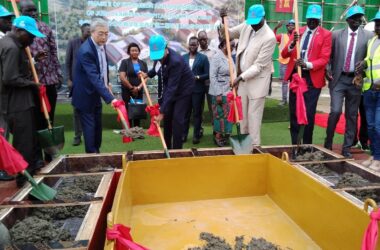By William Madouk
A lawmaker in the National Legislative Assembly has proposed an ambitious plan to address the 10-month salary arrears owed to civil servants, organized forces, and constitutional post holders.
Changkuoth Bichiock Reth, chairperson of the Specialized Committee on Finance and Economic Planning, suggested that funds from 20 barrels per day allocated for development and non-oil revenue be redirected to cover the overdue salaries.
“I am, therefore, suggesting and requesting this August House to direct the minister [finance] of and SSRA commissioner general to put SSRA collection into the government salary account,” he suggested.
“Suspends (put on hold) the resolution of the cabinet which allocates the Nile Blend Crude oil for infrastructure development projects and be reallocated by redirecting it to pay and clear wages and salaries,” he added.
In his statement, MP Reth revealed that the wages and salaries of civil servants in South Sudan amount to SSP 85 billion per month, according to the Ministry of Finance and Planning.
He mentioned that the Revenue Authority collects SSP 40 million+ per month from non-oil returns, which is almost half of the wages budget. Additionally, GPOC contributes $44 – 47 million to the national coffers, which could be enough to cover the salaries.
“This implies that both SSRA and Nile Blend Crude Oil are sufficient to pay the entire wage bill monthly and cater for keeping the government operational and slowly clear the entire government salaries and the foreign missions’ arrears that accumulated for almost 10 months,” Reth stated.
The legislator noted that this could be used as the temporary answer until a better solution is found to reallocate back the 20,000 a day for infrastructural development.
In response, First Deputy Speaker, Nathaniel Oyet Pierieno said the statement has financial implications as such the lawmaker must consult with the executive over the matter.
“The statement is in place; the only issue is that it has financial implications and any statement or bill having financial implications will require dialogue between the August House and executive,” he said.
Oyet referred to Article 89 of the constitution which says “No member of the National Legislative Assembly, outside the context of the deliberations of the draft general budget, shall introduce any financial bill or move any amendment to a bill having the object or effect of abolishing, imposing or increasing any tax or imposing any charge upon the public revenue or reserves, save with the prior consent of the National Council of Ministers.”
“The Minister of Finance, on the authority of the Council of Ministers, shall issue a certificate that a proposed bill or an amendment has such object or effect and such certification shall be conclusive,” the deputy Speaker further explained.
“A bill or an amendment shall not be deemed to have such object or effect by reason that it includes provisions for the imposition of fines or other pecuniary penalties or the payment of fees for services rendered,” Hon. Oyet said.
“so these particular Articles require that the House dialogue with the ministry of finance who go to the council of ministries and tables this particular request but it cannot stop any member from moving a bill that has a financial implication,” the deputy speaker noted.
He added, “you can move but the exception or limitation is you need the cooperation of the executive.”
Oyet further referred the statement to the Committee of Financial and Planning and the Committee on Legislation and Justice for further consultation with the Minister of finance.




